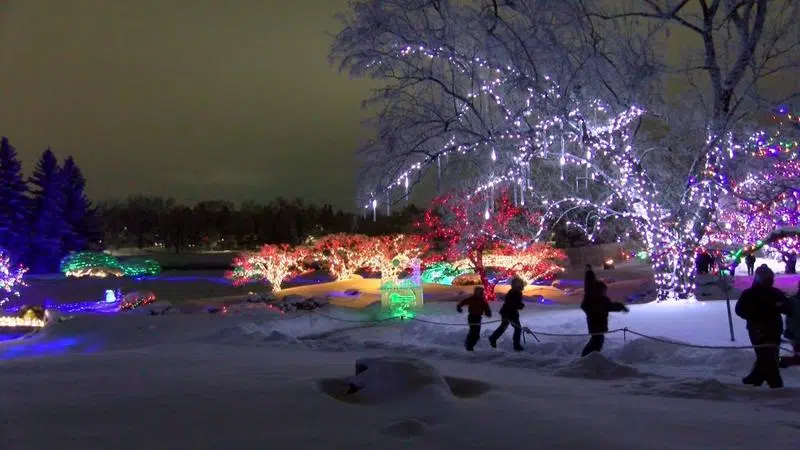
Winter Light Festival brings light – and fun – to dark winter evenings
LETHBRIDGE — The Winter Light Festival at Nikka Yuko Garden officially got underway last Friday (Nov. 29) and it’s clear the event’s popularity has not dimmed.
Many cultures around the world have a ‘season of light’ celebration during the winter months as a means of dispelling the darker days, and the Japanese culture is no exception. The Nikka Yuko gardens incorporated that observance into a Winter Lights Festival and created the new attraction to draw-in visitors in 2016.
A large number of people had commented that they would like to see lights in the garden, and after staff did research on the cultural significance of winter lights in Japan and what that meant, they thought it would it would fit perfectly.
In the Japanese culture, light is used in celebrations, remembrance of loss and to bring good energy. Given the local Japanese community and its history, the festival also gives recognition to what that culture has added to the Southern Alberta landscape.


